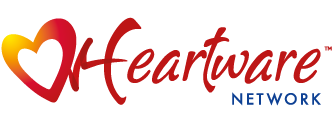1. Strategic Planning:
• Develop and implement HR strategies aligned with the organization's overall business objectives.
• Collaborate with executive leadership to ensure HR initiatives support the company's long-term goals.
2. Policy Development:
• Formulate, review, and update HR policies and procedures in compliance with labour laws and industry standards.
• Ensure consistent application and enforcement of policies across the organization.
3. Talent Acquisition and Recruitment:
• Oversee the recruitment process, including workforce planning, sourcing, interviewing, and selection.
• Develop and implement effective onboarding programs for new hires.
4. Employee Relations:
• Handle employee relations issues and mediate conflicts to maintain a positive work environment.
• Provide guidance and support to managers in dealing with employee-related matters.
5. Performance Management:
• Implement performance management systems, including goal-setting, performance reviews, and development plans.
• Address performance issues and contribute to employee development.
6. Training and Development:
• Identify training needs and coordinate the design and delivery of training programs.
• Support employee development initiatives to enhance skills and capabilities.
7. Compensation and Benefits:
• Develop and manage compensation and benefits programs to attract and retain top talent.
• Conduct salary surveys and ensure the organization's compensation practices are competitive.
8. HR Metrics and Analytics:
• Utilize data and analytics to assess HR performance and inform decision-making.
• Develop and monitor key HR metrics to measure the effectiveness of HR programs.
9. Succession Planning:
• Work on identifying and developing talent pipelines for key positions within the organization.
• Ensure a smooth transition of leadership and key roles through effective succession planning.
10. Employee Engagement:
• Develop and implement initiatives to enhance employee engagement and satisfaction.
11. HR Technology Management:
• Oversee the implementation and management of HR information systems (HRIS) and other HR technologies.
• Ensure technology solutions align with HR goals and streamline processes.
12. Budget Management:
• Develop and manage the HR budget, ensuring efficient use of resources.
13. Communication:
• Communicate HR policies, programs, and changes effectively to employees.
• Foster open communication channels within the organization.
The HR (Head) plays a pivotal role in creating and sustaining a positive workplace culture while ensuring that HR practices align with the organization's strategic objectives. This role requires a combination of strategic thinking, interpersonal skills, and a deep understanding of human resources principles and practices.
ATTITUDE, KNOWLEDGE & SKILLS REQUIREMENTS
1. Recognised degree in the field of human services, non-profit sector management, public administration or equivalent.
2. Keen interest in the non-profit sector and youth development.
3. Minimally 5 years of experience in Human Resources.
4. Ability to provide a work environment that engenders positive energy, creativity and teamwork among employees.
5. Outstanding leadership skills with ability to lead a team and give directions to employees.
6. Ability to supervise and evaluate employees and their work performance, establish rules and procedures and create efficient work schedules.
7. Excellent organisation and time management skills with ability to stick to targets and meet stringent deadlines.
8. Possess a high sense of commitment to work with willingness to put in extra time and effort.
9. Analytical and problem-solving skills in order to trouble-shoot and solve problems quickly and efficiently including attending to clients’ dissatisfaction and employee problems.
10. Excellent verbal and written communication skills.
11. Ability to work closely with the board of directors as an effective business partner and come up with strategies to grow the Charity’s business.





